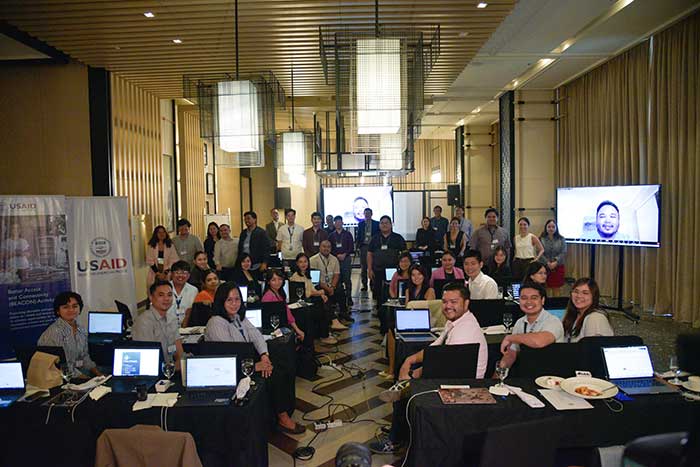
By Francis Allan L. Angelo
In a strategic move to modernize its Information and Communication Technology (ICT) laws, the Philippines through the National Economic and Development Authority (NEDA) and the Philippine Competition Commission (PCC), in collaboration with the U.S. Agency for International Development (USAID), has embarked on a series of learning sessions focusing on Artificial Intelligence (AI).
The recently held roundtable, ‘Introduction to AI and Emerging Technologies,’ is a notable step towards updating the country’s legal framework to harness the power of AI while safeguarding ethical and societal norms. This initiative is timely, given the transformative potential of AI across various sectors, from agriculture to healthcare.
PCC Executive Director Kenneth V. Tanate remarked on the balancing act required in embracing AI: “We can weigh the innovative promises of AI while also considering ethical and legal implications these might have on our society. Through careful study and assessment, I believe we can harness the benefits of AI in industries that need such innovation the most, while also tempering whatever unintended negative consequences might come with it.”
The drive towards AI integration in the Philippines is not new. In 2022, the PCC joined the Department of Trade and Industry’s forum on AI, exploring its benefits across key sectors. And more recently, the 10th ASEAN Competition Conference took a deep dive into AI’s impact on labor and IP rights, and market competition.
Highlighting the role of diverse industries in shaping policy, Jaemark Tordecilla, a journalist innovation and digital transformation specialist, emphasized the need for collective dialogue. His experience as the former editor-in-chief at GMA News Online and his current fellowship at Harvard University lends significant weight to his perspective on media engagement with technology companies.
“I don’t think it’s going to be effective if it’s just the government telling everyone what needs to be done. Different industries, for example, us in the media, we need to have positions on what we can ask for when we talk to policymakers and regulators about these industries. It’s important to engage the technology companies, to press them on what kind of guardrails they can put into their technologies,” Tordecilla highlighted.
The introductory roundtable on AI is the first of six sessions to be hosted monthly until September. The series will also feature new and emerging technologies such as Internet of Things, blockchain, and cloud computing, among others, towards an informed and future-ready legislation in the Philippines.
The government’s vision aligns with enhancing digital inclusivity through policies like the Konektadong Pinoy Bill, focusing on equitable internet access, and spectrum management reforms.
NEDA Undersecretary Krystal Uy underscored the importance of ICT policies in harnessing AI’s transformative capabilities.
“It’s imperative to recognize the critical role of ICT policies in enabling the potential of AI and its transformative impact on our work… In our efforts to bridge the digital gap, policies like the Konektadong Pinoy Bill (formerly known as the Open Access in Data Transmission bill) and reforms in spectrum management are crucial. By advocating for these reforms, we aim to ensure that every community, regardless of their location or economic background, can access dependable and high-speed internet services, and take advantage of opportunities enabled by the internet, such as AI,” Uy said.
The Philippine Development Plan 2023-2028 underscores the necessity of modernizing ICT policies to propel online work and e-commerce, fostering a supportive regulatory environment that encourages connectivity and innovation.
These efforts align with the government’s intent to review existing policies, such as the Telecommuting Act, to reflect the burgeoning trend of remote work and part-time employment opportunities that support continuous learning and skill upgrading.
The advocacy to refresh ICT laws in the Philippines has gained momentum with NEDA, PCC, and USAID’s unified stance, echoing the call for the immediate passage of the Konektadong Pinoy Bill, previously known as the Open Access in Data Transmission bill. This bill is vital for a more competitive ICT sector, which promises faster, reliable, and affordable internet access, unlocking the full economic potential of digitalization for all Filipinos.
















